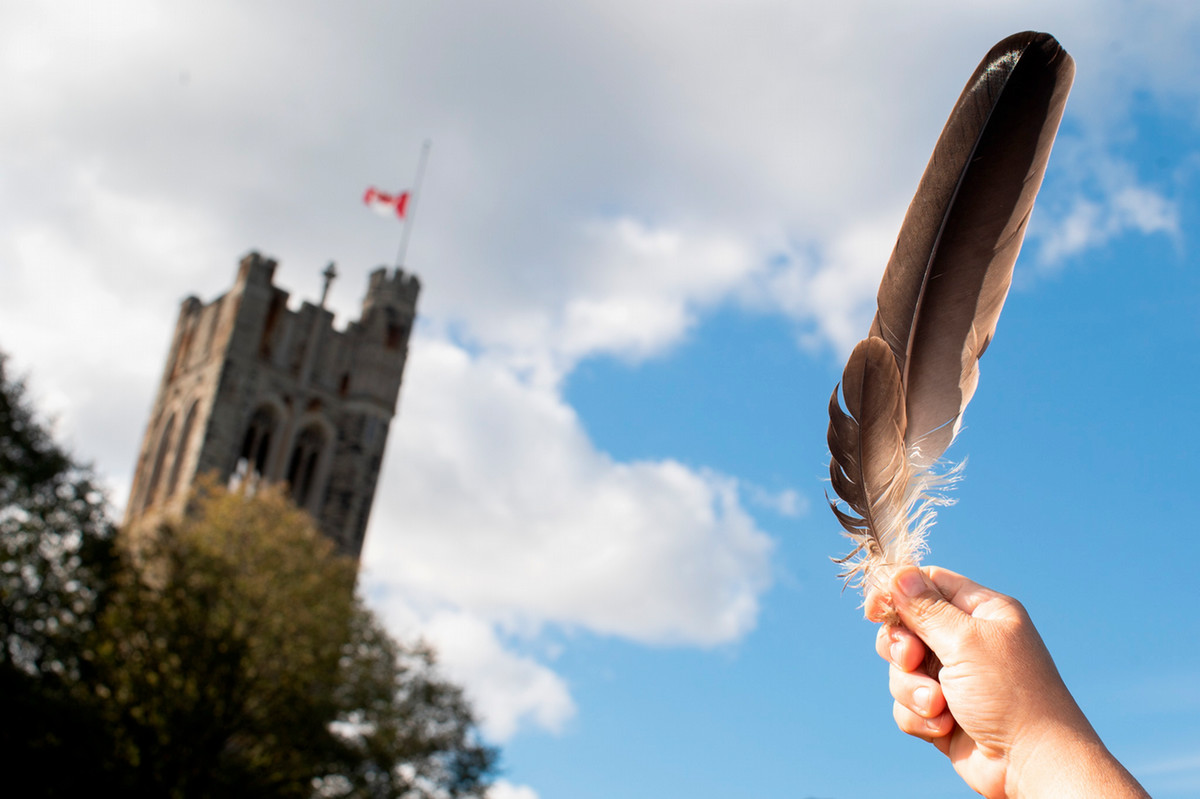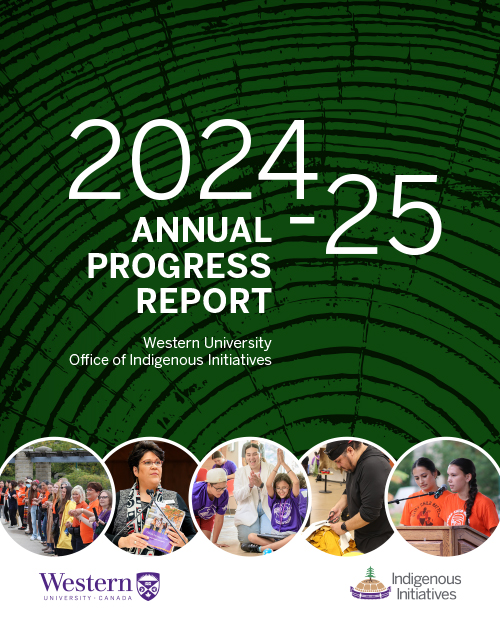New Policy to Affirm Indigenous Citizenship or Membership Introduced at Western

Western University has introduced Policy 1.58 – Affirming Declarations of Indigenous Citizenship or Membership at Western University, a new initiative formalizing the University’s approach to recognizing and affirming declarations of Indigenous citizenship or membership.
Ratified by the Board of Governors on June 26, the Indigenous-led policy outlines how Western will respectfully and appropriately affirm declarations of Indigenous citizenship or membership made by students, staff, faculty and community partners, in alignment with Indigenous ways of knowing, belonging and being.
This policy reflects Western’s commitment to truth, reconciliation, authentic representation and the affirmation of Indigenous sovereignty and self-determination.
“Authentic Indigenous representation at universities isn’t just about visibility – it’s about honouring our rights to speak for ourselves, teach our histories and shape the institutions that operate on our lands,” said Debbie Dolson, co-chair of Western’s Indigenous Postsecondary Education Council and post-secondary education counsellor for Chippewas of the Thames First Nation. “If we’re not at the table, decisions get made about us, without us.”
This Policy applies to anyone who makes a declaration of Indigenous citizenship or membership that results in intangible benefits (e.g., influence, authority perspective) and or material advantage, e.g. for admission pathways, hiring or any other opportunities or initiatives that are explicitly designated for Indigenous people or where those declaring Indigenous citizenship or membership are given preference.
“Through this Indigenous-designed and Indigenous-led policy, Western accepts responsibility to renew and maintain respectful relationships with Indigenous communities by moving beyond the insufficient practice of relying solely on Indigenous ‘self-identification’,” said Christy Bressette, vice-provost & associate vice-president (Indigenous Initiatives). “This policy helps support a safe, inclusive and diverse culture at Western – one that respects Indigenous rights to self-determination, governance and community-defined relationships.”
The policy centers on lived experience and respects the diversity of Indigenous governance systems, citizenship criteria and community affiliations to ensure that opportunities designated for Indigenous people at Western are accessed by Indigenous people.
When applying for an Indigenous-designated role or opportunity at Western, all applicants must now demonstrate that the Indigenous community they identify with also recognizes them as a member. This is achieved by submitting both a ‘Relational Positionality’ statement and two forms of documentation that confirm their citizenship or membership in the Indigenous Nation they claim. The Indigenous Affirmation Advisory Committee then reviews the submission to determine whether the applicant’s declaration meets the requirements outlined in the Policy and associated Procedure.
Opportunities for individuals who have been disenfranchised and are currently reconnecting with their Indigenous communities will be considered by the IAAC, provided they still submit a Relational Positionality statement and two supporting pieces of documentation.
This policy was developed through a collaborative and consultative process that included guidance from Indigenous students, staff, faculty, Elders and local First Nations.
“What makes this policy unique is that representatives from the local First Nations are actively involved in the Indigenous Affirmation Advisory Council, where they help review declarations and relational positionality statements,” said Paula Cornelius-Hedgepeth, director of Indigenous engagement. “This ensures the process is grounded in ongoing Indigenous leadership, community values and local governance systems, not just a one-time consultation.”
The Policy aligns with national recommendations and builds on foundations established by the Truth and Reconciliation Commission of Canada, the United Nations Declaration on the Rights of Indigenous Peoples, Towards Western at 150: Western University Strategic Plan and Western’s Indigenous Strategic Plan.
Western University remains committed to fostering a campus environment that honours Indigenous rights, knowledge systems and relationships.
To learn more about Policy 1.58 – Affirming Declarations of Indigenous Citizenship or Membership at Western University, visit indigenous.uwo.ca/initiatives/policiesguidelines/indigenous_affirmation.html

